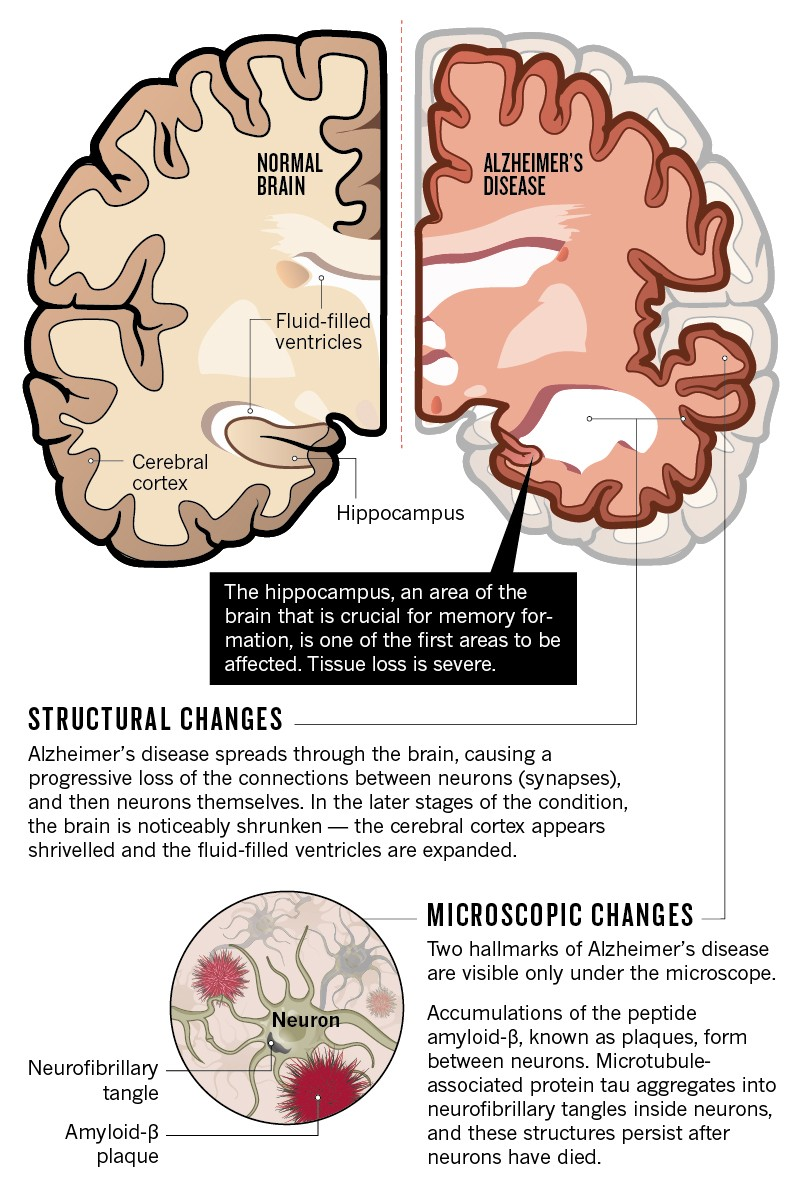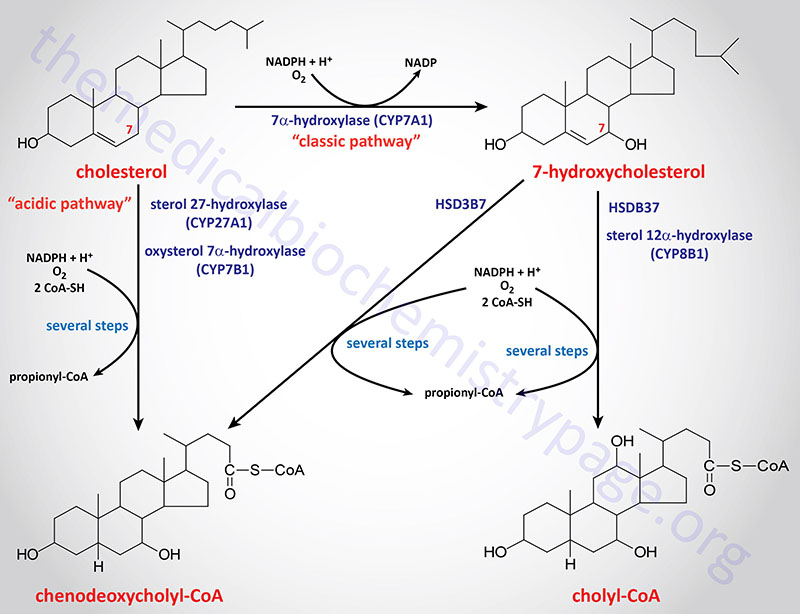Age-related brain diseases are becoming a major concern as our population ages, significantly impacting overall brain health. These conditions, including dementia, stroke, and late-life depression, are not just inevitable parts of growing older; they are influenced by various modifiable risk factors. Researchers at Mass General Brigham have identified 17 key factors that individuals can actively manage to reduce their risk of developing these debilitating diseases. By addressing factors such as blood pressure, diet, and physical activity, we not only empower ourselves but also improve our quality of life as we age. With these findings, there is a unique opportunity to mitigate the burden of age-related brain diseases and foster healthier, more fulfilling lives.
As we explore the landscape of cognitive decline and neurological disorders associated with aging, age-related brain ailments manifest in several forms. These disorders, commonly characterized by a decline in mental function, are often linked with comorbid conditions such as cerebrovascular issues and psychological health challenges. The interrelation of these conditions highlights the concept that risk factors influencing cognitive impairment can similarly affect emotional well-being. This duality opens a pathway for preventative strategies that target both physical and mental health aspects. Ultimately, promoting awareness about the interconnectedness of these aging-related conditions may lead to enhanced interventions and improved overall brain wellness.
Understanding Age-Related Brain Diseases
Age-related brain diseases, such as dementia and stroke, significantly impact quality of life and are becoming increasingly prevalent as the population ages. These diseases are characterized by a gradual decline in cognitive abilities and an increased risk of mental health issues, notably late-life depression. Understanding the underlying risk factors associated with these conditions is essential for developing effective prevention strategies. As researchers have identified, many of the factors contributing to these diseases are modifiable, offering promising opportunities for intervention.
By addressing factors such as high blood pressure, diabetes, and social engagement, individuals can potentially alter their risk profiles for age-related brain diseases. Moreover, recent studies have linked lifestyle choices, including diet and physical activity, to brain health. For example, regular exercise and a balanced diet rich in nutrients can bolster cognitive function and might reduce the likelihood of developing diseases like dementia and stroke.
The Importance of Modifiable Risk Factors
Researchers at Mass General Brigham have identified 17 key modifiable risk factors associated with age-related brain diseases. These factors present an actionable framework for individuals seeking to improve their brain health. By prioritizing lifestyle changes, such as maintaining a healthy weight, managing stress, and engaging in social activities, individuals can significantly lower the risks of developing dementia, stroke, and related conditions.
Among these modifiable factors, hypertension and obesity play critical roles in increasing the risk of multiple age-related diseases. Implementing preventative measures, such as routine health screenings and dietary adjustments, can empower individuals to make positive changes. Simple strategies like increasing physical activity and eating a balanced diet not only enhance overall health but also reduce the likelihood of experiencing debilitating brain diseases.
Stroke Prevention Through Lifestyle Changes
Stroke prevention is closely tied to lifestyle choices and health management. High blood pressure is the leading risk factor for strokes, yet it is manageable through dietary changes, regular exercise, and medication adherence where necessary. Individuals can significantly reduce their stroke risk by monitoring blood pressure levels and making informed lifestyle adjustments.
Additionally, managing other health conditions such as diabetes and high cholesterol through a healthy diet and physical activity can also contribute to reduced stroke risk. The importance of these lifestyle changes cannot be overstated, as they not only enhance vascular health but also promote brain resilience against age-related decline.
The Impact of Late-Life Depression
Late-life depression is a common yet often overlooked issue affecting older adults. This condition not only diminishes quality of life but can also increase the risk of developing other age-related brain diseases, such as dementia and stroke. Understanding the interconnectedness of these health issues is crucial for effective prevention and treatment.
Addressing modifiable risk factors such as loneliness, lack of social engagement, and unmanaged stress can significantly improve mental health outcomes for seniors. Encouraging community involvement and providing resources for mental health support are vital steps in alleviating late-life depression and enhancing overall brain health.
The Role of Diet in Brain Health
Diet plays a pivotal role in maintaining brain health, as certain nutritional patterns have been linked to reduced risks of age-related brain diseases. Diets rich in fruits, vegetables, whole grains, and healthy fats—such as the Mediterranean diet—are associated with improved cognitive function and lower incidences of diseases like dementia and stroke.
Moreover, reducing the intake of processed foods high in sugar and trans fats can also be beneficial. By fostering healthy eating habits, individuals can create a strong foundation for brain health, thereby lowering the impact of modifiable risk factors on their overall health.
Physical Activity and Cognitive Function
Regular physical activity emerges as one of the most effective strategies for reducing risk factors associated with age-related brain diseases. Engaging in aerobic exercises, strength training, and even leisure activities that stimulate cognitive function, such as puzzles or dance, has shown significant benefits for brain health.
Physical activity not only helps maintain physical health but also contributes to improved mood and cognitive function, creating a positive feedback loop that can combat the risk of late-life depression and cognitive decline. Thus, integrating regular physical activity into daily routines can lead to overall improvements in mental and physical well-being.
Social Engagement as a Protective Factor
Social engagement is recognized as a significant factor in maintaining brain health throughout the aging process. Elderly individuals who participate in community activities, maintain friendships, and have strong support systems tend to experience lower rates of depression and cognitive decline.
Fostering social connections can provide emotional support and a sense of belonging, crucial elements for mental health in older adults. Encouraging elders to engage in social activities can be a simple yet powerful way to mitigate risk factors associated with age-related brain diseases.
Stress Management and Brain Health
Chronic stress has detrimental effects on brain health, contributing to conditions such as depression, anxiety, and cognitive decline. Understanding and managing stress through techniques like mindfulness, meditation, and structured physical activities can significantly enhance an individual’s quality of life.
Implementing stress reduction strategies not only improves mental well-being but can also lead to physiological benefits, such as lowered blood pressure and improved heart health. In turn, these changes can reduce the risk of developing age-related brain diseases.
The Importance of Sleep Quality
Quality sleep is essential for maintaining brain health, impacting cognitive function and emotional regulation. Inadequate sleep has been linked to heightened risks of dementia, depression, and other age-related brain diseases, underscoring the need for effective sleep hygiene practices.
Improving sleep quality through consistent sleep schedules, a conducive sleep environment, and relaxation techniques can foster better cognitive outcomes as individuals age. Prioritizing sleep as part of a holistic approach to health can create significant improvements in the risk profiles for various brain diseases.
Coping with Dementia Risk Factors
Dementia poses one of the greatest challenges to brain health in older age, characterized by a decline in memory, thinking, and social abilities. Recognizing and addressing the risk factors associated with dementia is crucial for mitigation and prevention. Factors such as poor education, physical inactivity, and social isolation can contribute to an increased risk of developing dementia.
By promoting lifelong learning, physical fitness, and social interaction, individuals can actively combat the effects of these risk factors. Engaging in activities that stimulate the mind and body serves not only as a preventative measure but also enhances overall resilience against decline.
Frequently Asked Questions
What are the modifiable risk factors for age-related brain diseases like dementia and stroke?
Research has identified several modifiable risk factors for age-related brain diseases including high blood pressure, diabetes, high cholesterol, kidney disease, and obesity. Additionally, lifestyle choices such as diet, physical activity, alcohol use, smoking, and social engagement play a critical role in reducing the risk of conditions like dementia and stroke.
How can improving brain health help in stroke prevention?
Improving brain health can significantly aid in stroke prevention by addressing modifiable risk factors such as maintaining normal blood pressure, controlling diabetes, and leading an active lifestyle. The modification of these risk factors can lower the likelihood of experiencing stroke and other age-related brain diseases.
What lifestyle changes can reduce dementia risk factors as you age?
To reduce dementia risk factors, individuals can adopt healthier diets, engage in regular physical activity, manage stress, avoid smoking, limit alcohol consumption, and ensure adequate social interaction. These lifestyle changes positively impact overall brain health and can lower the risk of developing dementia.
Why is late-life depression connected to other age-related brain diseases?
Late-life depression is often interconnected with other age-related brain diseases such as dementia and stroke due to shared risk factors. Conditions like high blood pressure, diabetes, and obesity can exacerbate both depression and cognitive decline, highlighting the importance of addressing these common risk factors.
What role does physical activity play in maintaining brain health?
Physical activity is vital for maintaining brain health, as it helps lower the risk of stroke, dementia, and depression. Regular exercise promotes good blood circulation and supports overall physical and mental well-being, which are essential for healthy aging and reducing the incidence of age-related brain diseases.
Can a poor diet affect the risk of dementia and stroke?
Yes, a poor diet significantly affects the risk of dementia and stroke. Diets high in saturated fats, sugars, and processed foods can lead to obesity, diabetes, and high cholesterol, all of which are associated with increased risk of age-related brain diseases. Eating a balanced diet rich in fruits, vegetables, and whole grains can help mitigate this risk.
What indicates the importance of managing stress in relation to age-related brain diseases?
Managing stress is crucial as chronic stress has been linked to increased risk of age-related brain diseases such as depression, dementia, and stroke. Techniques such as mindfulness, relaxation exercises, and social support can help reduce stress and potentially improve brain health outcomes.
How does social engagement impact brain health in older adults?
Social engagement positively impacts brain health by reducing feelings of loneliness and depression, which are prevalent in older adults. Active engagement in community activities and maintaining relationships can help decrease the risk of cognitive decline and the onset of age-related brain diseases.
What is the connection between sleep quality and age-related brain diseases?
Sleep quality directly influences brain health, with poor sleep associated with higher risks of dementia, depression, and stroke. Ensuring adequate sleep helps in cognitive recovery and reduces the risk factors underlying age-related brain diseases.
What new research is available on modifiable risk factors for age-related brain diseases?
Recent research from Mass General Brigham has identified 17 modifiable risk factors shared among age-related brain diseases such as stroke, dementia, and late-life depression. This underscores the potential for preventive efforts focused on these risk factors to lessen the burden of multiple diseases simultaneously.
| Risk Factor | Relation to Age-Related Brain Diseases |
|---|---|
| Diabetes | Increases risk of stroke, dementia, and depression |
| Blood Pressure | Major risk factor for all three conditions |
| Kidney Disease | Increases risk of stroke, dementia, and depression |
| Fasting Plasma Glucose | High levels pose risk for stroke and dementia |
| Total Cholesterol | Elevated levels increase stroke and dementia risk |
| Alcohol Use | Linked to increased risk of all three conditions |
| Diet | A poor diet can lead to all three conditions |
| Hearing Loss | A modifiable risk for dementia |
| Pain | Chronic pain increases depression risk |
| Physical Activity | Lack of activity contributes to all three conditions |
| Purpose in Life | Lack of purpose may lead to depression |
| Sleep | Poor sleep quality increases risk of depression |
| Smoking | A major risk factor for all conditions |
| Social Engagement | Lack may contribute to depression |
| Stress | Chronic stress increases depression risk |
| Depression | Untreated depression increases risk of other diseases |
| Obesity | A risk factor for all three conditions |
Summary
Age-related brain diseases such as stroke, dementia, and late-life depression are interconnected and share numerous risk factors. Identifying and modifying these factors can effectively reduce the risk of developing these conditions. Health researchers at Mass General Brigham have highlighted 17 key modifiable risk factors, including blood pressure, kidney disease, and lifestyle choices like diet and physical activity. This offers a clear path towards preventative care and emphasizes the importance of early intervention in maintaining brain health as we age.



